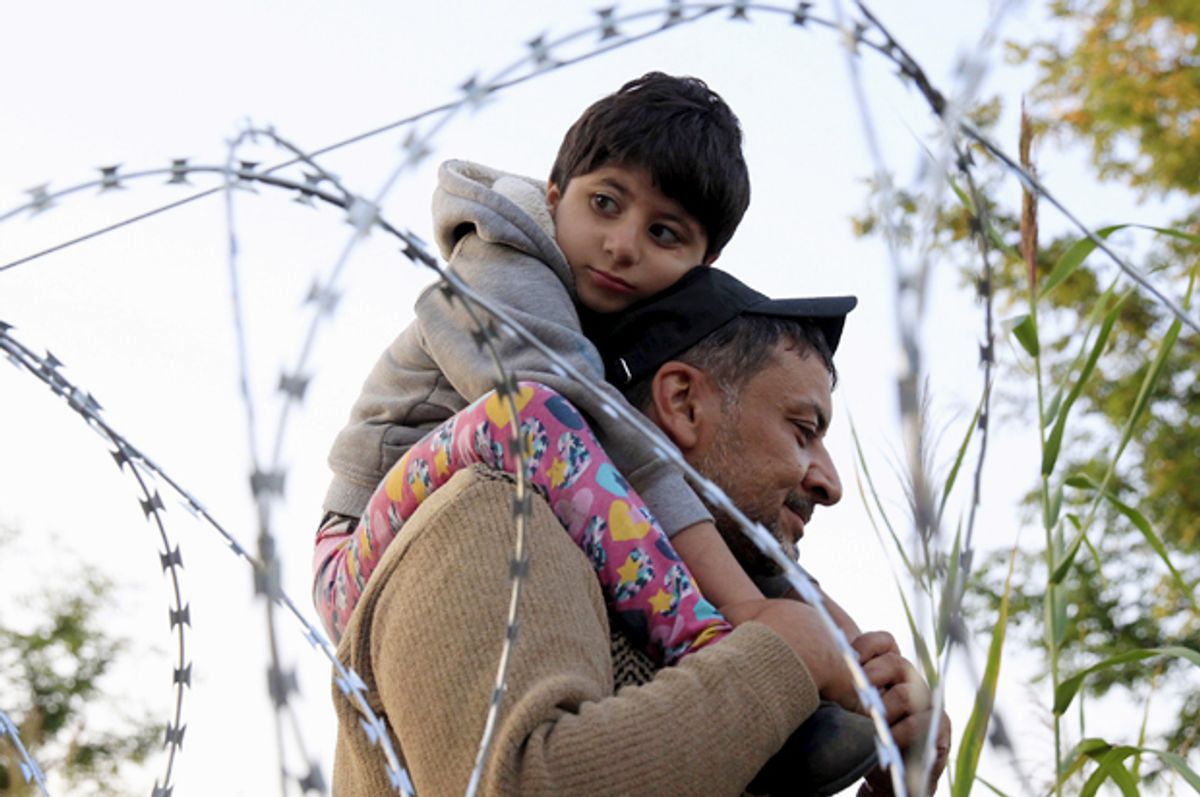The civil war in Syria, which the aid agency Mercy Corps describes as “the worst humanitarian disaster of our time,” has been raging for more than four years. But although many in the West have long been at least vaguely aware of the ongoing cataclysm, it was only this past Wednesday that a single photo went viral and made the Syrian people’s suffering agonizingly clear.
The photo shows the corpse of three-year-old Aylan Kurdi, a Kurdish refugee who drowned in the Mediterranean Sea while attempting to make his way to the Greek island of Kos, a way-station on the road to the West. It is one of the most gut-wrenching images I’ve ever seen. Tragically, however, Kurdi’s fate is not unusual. He is but one of the thousands of refugees who have died while trying to make their way to safety; his four-year-old brother, Galip, and his mother, Rehen, reportedly drowned, too.
As horrifying as images of Kurdi’s body on a Turkish beach are, some observers and activists have expressed hope that they will inspire the global community to take the refugee crisis much more seriously. Comparisons have been made to the iconic and similarly shocking 1972 picture of Kim Phuc, which many believe helped end the war in Vietnam. And there are signs that public revulsion will force some European leaders, such as David Cameron and Angela Merkel, to provide asylum to more refugees.
Unquestionably, Europe should open its doors to far more of these innocent people. According to the Telegraph, although there are some 4.1 million Syrian refugees, the UK has granted asylum to only 4,866 Syrian nationals. France has taken in a similar number. Germany has significantly more than that, and has promised to devote ample resources to bringing in others. The vast majority, though, are living in in places like Lebanon, Jordan, Turkey, Egypt and Iraq — often in poor and desperate conditions.
But as lacking as the response to the crisis has been in much of Europe — with Hungary, especially, covering itself in shame — the actions of the United States have been worse. U.S. Assistant Secretary of State for Population, Refugees and Migration Anne Richard recently told NPR that America’s stance regarding Syrian refugees was “very rapidly going to change.” One would hope so, because it’s hard to imagine the U.S. doing much less. To date, America has welcomed fewer than 2,000 refugees.
Earlier this summer, the State Department claimed the U.S. would accept “5,000 to 8,000” Syrian refugees during the 2016 fiscal year. That’s certainly a step in the right direction, but it’s still well short of the 65,000 that activists, aid workers and some government officials have requested. And it’s dwarfed by the 800,000 Germany is expecting by the end of the year. It’s true that the U.S. is leading when it comes to providing humanitarian relief. But America can’t buy its way out of further obligations.
Doing the right thing will be hard; refugees are suffering in the here and now, and bureaucracies are notoriously slow-moving. But if more U.S. politicians start echoing the sentiments of Kentucky senator and presidential candidate Rand Paul, a challenge may turn into an impossibility. Speaking to CNN on Thursday, Paul said that because America “can't accept the whole world” there must be “limits” placed on its willingness to accommodate refugees. Unfortunate as that was, Paul wasn’t finished.
“[W]e’ve also run into some problems,” Paul continued, “with accepting so many refugees that we take some of the people who can help rebuild the country.” With Iraq, he said, “we won the war, but then we accepted 60,000 Iraqi refugees into our country, some of which wish us harm and tried to attack us.” He provided no evidence; but he didn’t need to. For far too many Americans — and Europeans, for that matter — the idea that anyone from the Middle East is a potential terrorist is simple common sense.
In sum, the protracted trauma millions of Syrians are enduring reminds me of no one so much as Hannah Arendt. Once a refugee herself, Arendt would ultimately make the controversial argument that the refugee, more than any other type of person, reveals the paper-thin nature of our devotion to human rights. When confronted with people who had nothing “except that they were still human,” Arendt argued, Europe in the ‘30s and ‘40s offered no protection. Citizens had rights; humans didn’t.
We are some 70 years removed from the time of Arendt’s writing. But as the tragic story of the Kurdi family testifies, whether we’ve learned anything in the time since remains an open question.


Shares